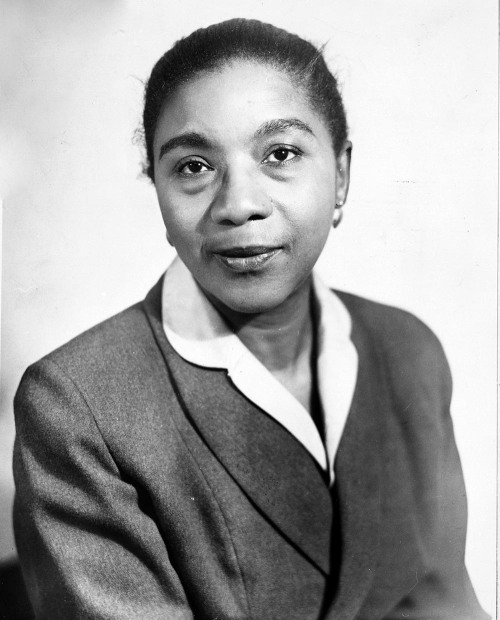Women's Rights & Issues
Showing Original Post only (View all)Maida Springer Kemp Championed Workers' Rights on a Global Scale [View all]
The Panamanian garment worker turned labor organizer, Pan-Africanist, and anti-colonial activist advocated for US and African workers amid a Cold War freeze.
By Kim KellyTwitter
Yesterday 10:00 am

Maida Springer Kemp. (Kheel Center for Labor-Management Documentation and Archives, Cornell University Library)
The American labor movement was built by Black workers, organizers, and activists, from the Rev. Addie L. Wyatt to Lucy Parsons to the washerwomen of Jackson, Miss., who formed the state’s first labor union in 1866 to the warehouse workers in Bessemer, Ala., fighting to unionize Amazon. Maida Springer Kemp, a union organizer who worked to connect the US and African trade movements, is just one of the incredible Black women whose determination and vision has shaped the history of labor in this country. During the height of Jim Crow, this daughter of Caribbean immigrants and former garment worker strode onto the world stage and took the struggle global.
Kemp was born Maida Stewart in 1910 in Panama, emigrated at 7, and was raised in Harlem by a single mother who embraced Black nationalist Marcus Garvey and was a member in his Universal Negro Improvement Association (UNIA). She held political gatherings in their home, took little Maida along to UNIA meetings, and sent her next door to help fold leaflets for a friend’s father, who was in the all-Black Brotherhood of Sleeping Car Porters union. A. Philip Randolph, the union’s charismatic leader, later became a close friend, and Kemp remained fiercely loyal to him even when their interests clashed. At 22, she went to see him speak when she was still distrustful of organized labor, which had earned its reputation for anti-Blackness and racial discrimination. Randolph’s speech connected the dots between how racist employers tried to divide workers and depress Black economic advancement, and she came away dazzled by the potential of union power. “He excited my interest and challenged my mind to think about something besides the prejudice against the Black community,” she later recalled. “I got a PhD education in survival from Randolph and an awareness of a struggle and of Black and white relationships.”
Kemp’s life, work, and politics were shaped by her experiences at the intersection of labor, race, gender, class, and colonialism. Her early years in Panama, her childhood in Harlem, her school days at a vocational boarding school in Bordentown, N.J., sometimes called “The Tuskegee of the North,” and her later international travels all informed her perspective on the world, her place within it, and what kinds of changes were needed. Kemp’s determination to confront those inseparable systems of oppression set her apart from many of her peers in labor, and made her a target for those who would rather ignore the ugly truths she lived through as a working-class Black woman in the United States, Europe, and Africa. Her career should be an example to the current and next generation of labor activists, and remind those of us in the West—and particularly in the US—that the cause of labor is a global struggle.
For example, as Luis Feliz Leon and Dan DiMaggio recently reported for Labor Notes, there is an extremely important union election underway in Mexico right now, where workers at a General Motors plant in Silao are trying to break free of their corrupt local of the Confederation of Mexican Labor (CMT). After voting to invalidate their last CMT contract, the workers are choosing between four options—two CMT-connected unions, a “ghost” union about which suspiciously little is known, and the independent National Auto Workers Union (SINTTIA). On February 3, the results came in, and the workers voted overwhelmingly for SINTTIA. “We can have better salary conditions, and more importantly, labor conditions, and good union representation,” SINTTIA leader Morales told Labor Notes. “That’s the starting point for other workers to be encouraged to raise their voices and not be subjected to the company.”
https://www.thenation.com/article/activism/maida-springer-kemp-labor/
( So grateful, what an amazing woman. )